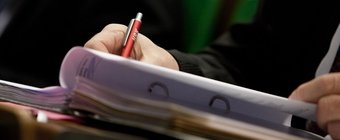Requirements and regulations for the 2021/22 winter semester
For the winter semester 2021/22, the universities and the Länder strived to make face-to-face study possible again, as far as the pandemic conditions and the necessities of health protection would allow. The constantly changing coronavirus situation remained the central factor in planning. The universities used the experience of the past three semesters to assess local risks and responsibly plan and give access to face-to-face courses. All options were used to strengthen and support students in their everyday studies.
As things stood in summer 2021, universities geared up for different scenarios, largely based on the 3G rule (Geimpft, genesen oder getestet – admission only for vaccinated, recovered or tested persons), as the Federal Government and the Länder also based their "Measures for Coping with the Corona Pandemic" on in August 2021. The following were descriebed as likely and possible scenarios:
- Exercises and seminars to be conducted with a mask and in compliance with the distance and ventilation rules for face-to-face teaching; larger lectures to be conducted digitally.
- Hybrid formats with the option of participating digitally or in person to be offered if this makes didactic sense, provided that it would be technically possible and could be financed. Given the complex requirements here, hybrid formats were seen as exeption of the general rule. In the event of worsening of the pandemic, a nationwide return to purely digital formats was expected to be a necessary scenario.
Since the end of November 2021, individual federal states also provided options to conduct face-to-face courses under 2G hygiene rules (Geimpft oder genesen – admission only for vaccinated or recovered persons), provided that suitable measures could have been taken to ensure that non-immunised students were still able to study. In December 2021, due to the worsening pandemic situation, some Länder opened up the possibility for their universities to hold a larger proportion of lectures and seminars in online format again.

